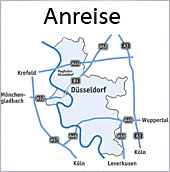Provisional Schedule
The talks will take place in the seminar room 01.81 in building 25.22.
The colloquium talk on Friday afternoon will take place in the lecture hall HS 5H.
Here is a complete programme with abstracts of all talks.
| Wednesday 20.07.2016 | |
| 8:30 - 9:00 | Registration (in front of 01.81) |
| 9:00 - 10:30 | Daniel Loughran (Hannover) Abstract. |
| Height zeta functions (1) | |
| 11:00 - 12:30 | Immanuel Halupczok (Leeds) Abstract. |
| Understanding Igusa zeta-functions using motivic integration (1) | |
| 12:30 - 14:15 | Lunch break |
| 14:15 - 15:00 | Matteo Vannacci (Düsseldorf) |
| Random relations and zeta functions of profinite groups | |
| 15:00 - 15:45 | Coffee break |
| 15:45 - 16:15 | Angela Carnevale (Bielefeld) |
| Orbit Dirichlet series (slides as PDF) | |
| 16:30 - 17:15 | Thomas Cauwbergs (Bielefeld) |
| Motivic Zeta Functions and Splicing | |
| Thursday 21.07.2016 | |
| 9:00 - 10:30 | Christopher Voll (Bielefeld) Abstract. |
| Zeta functions of groups, algebras, and modules (1) | |
| 11:00 - 12:30 | Daniel Loughran (Hannover) Abstract. |
| Height zeta functions (2) | |
| 12:30 - 14:00 | Lunch break |
| 14:00 - 14:45 | Alexander Stasinski (Durham) |
| Representation growth of GL2(O) and SL2(O) in residue characteristic 2 | |
| 15:00 - 15:30 | Javier García Rodríguez (Madrid) |
| The Congruence Subgroup Property and representation growth | |
| 15:30 - 16:10 | Coffee break |
| 16:10 - 16:55 | Michael Schein (Bar-Ilan) |
|
On the behavior of pro-isomorphic zeta functions under base extension (slides as PDF) |
|
| 17:00 - 17:30 | Discussion session |
| Evening | Common dinner in a nearby restaurant |
| Friday 22.07.2016 | |
| 9:00 - 10:30 | Immanuel Halupczok (Leeds) Abstract. |
| Understanding Igusa zeta-functions using motivic integration (2) | |
| 11:00 - 12:30 | Christopher Voll (Bielefeld) Abstract. |
| Zeta functions of groups, algebras, and modules (2) | |
| 12:30 - 14:15 | Lunch break |
| 14:15 - 15:00 | Jan-Christoph Schlage-Puchta (Rostock) |
| Numerical evaluation of Witten's zeta function for symmetric groups | |
| 15:15 - 16:00 | Tobias Roßmann (Bielefeld) |
|
Computing zeta functions of groups, algebras, and modules (slides for the second half of the talk as PDF) |
|
| 16:00 - 16:45 | Coffee break |
| 16:45 - 17:45 HS 5H |
Wim Veys (Leuven) Mathematical colloquium |
| Zeta functions and the monodromy conjecture | |
Height zeta functions
Daniel Loughran (Leibniz Universität Hannover)
In this course we discuss the theory of height zeta functions. Such zeta functions naturally arise when one is interested in counting rational points of bounded height on algebraic varieties, and there is a conjecture of Manin concerning their analytic behaviour. After some basic examples we shall illustrate some of the range of behaviour which occurs via the cases of flag varieties and toric varieties, where the presence of a group structure allows one to address the zeta function using tools from harmonic analysis. If time permits, we shall also consider some related counting problems where the associated height zeta functions have branch point singularities.
Understanding Igusa zeta-functions using motivic integration
Immanuel Halupczok (University of Leeds)
On ℚ_p, the field of p-adic numbers, one has a natural Lebesgue measure,
giving a meaning to the integrals of functions from ℚ_p^n to ℂ. If we
are given one such function f_p: ℚ_p^n -> ℂ for each prime p in a
suitable uniform way, then motivic integration provides a way to also
compute the integrals uniformly in p; I will explain how this works.
As an example, I will show how this can be applied to Igusa Zeta
functions, which fall into this framework. As a result, one obtains that
a rationality result about Igusa Zeta functions can be made uniform in
ℚ_p. (All this will also be explained.)
Zeta functions of groups, algebras, and modules
Christopher Voll (Universität Bielefeld)
I will give a very concise introduction to various zeta functions used
in asymptotic group and ring theory, concentrating on those
enumerating subobjects of various kinds. A prototype of such a function
is the zeta function enumerating the normal subgroups of finite index
in a finitely generated nilpotent group. The zeta functions in
question typically satisfy Euler product decompositions, with
("local") factors indexed by places of number fields.
In the first talk I will explain a number of intringuing features
these Euler factors tend to exhibit (such as rationality and
functional equations), talk about methods from $p$-adic integration to
compute them, and introduce their reduced and topological
counterparts.
In the second talk I will concentrate on zeta functions enumerating
submodules invariant under a nilpotent algebra of endomorphisms. These
generalize the normal subgroup zeta functions mentioned above. I will
discuss a sufficient condition for these zeta functions to satisfy
local functional equations, shedding new light on a conjecture of du
Sautoy and Woodward.


